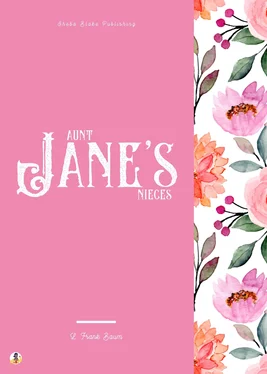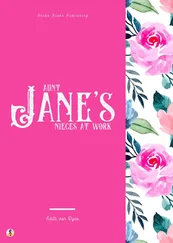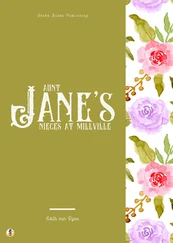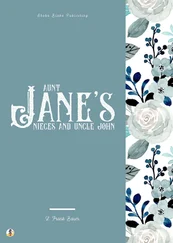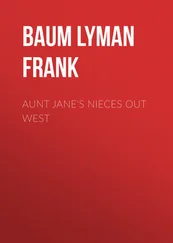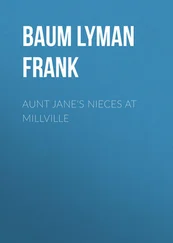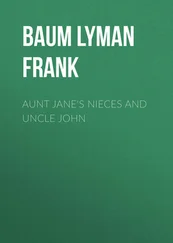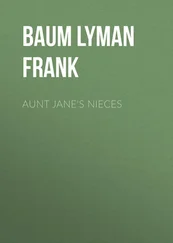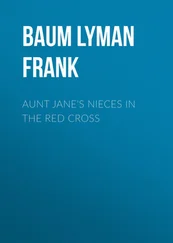“Your aunt is failing fast.” Although no relative, Kenneth had been accustomed to speak of Jane Merrick as his aunt.
Getting neither word nor look in reply the lawyer presently continued:
“I do not think she will live much longer.”
The boy stared from the window and drummed on the sill with his fingers.
“When she dies,” said Mr. Watson, in a musing tone, “there will be a new mistress at Elmhurst and you will have to move out.”
The boy now turned to look at him, enquiringly.
“You are twenty, and you are not ready for college. You would be of no use in the commercial world. You have not even the capacity to become a clerk. What will you do, Kenneth? Where will you go?”
The boy shrugged his shoulders.
“When will Aunt Jane die?” he asked.
“I hope she will live many days yet. She may die tomorrow.”
“When she does, I’ll answer your question.” said the boy, roughly. “When I’m turned out of this place—which is part prison and part paradise—I’ll do something. I don’t know what, and I won’t bother about it till the time comes. But I’ll do something.”
“Could you earn a living?” asked the old lawyer.
“Perhaps not; but I’ll get one. Will I be a beggar?”
“I don’t know. It depends on whether Aunt Jane leaves you anything in her will.”
“I hope she won’t leave me a cent!” cried the boy, with sudden fierceness. “I hate her, and will be glad when she is dead and out of my way!”
“Kenneth—Kenneth, lad!”
“I hate her!” he persisted, with blazing eyes. “She has insulted me, scorned me, humiliated me every moment since I have known her. I’ll be glad to have her die, and I don’t want a cent of her miserable money.”
“Money,” remarked the old man, knocking the ashes from his pipe, “is very necessary to one who is incompetent to earn his salt. And the money she leaves you—if she really does leave you any—won’t be her’s, remember, but your Uncle Tom’s.”
“Uncle Tom was good to my father,” said the boy, softening.
“Well, Uncle Tom gave his money to Aunt Jane, whom he had expected to marry; but he asked her to care for his relatives, and she’ll doubtless give you enough to live on. But the place will go to some one else, and that means you must move on.”
“Who will have Elmhurst?” asked the boy.
“One of your aunt’s nieces, probably. She has three, it seems, all of them young girls, and she has invited them to come here to visit her.”
“Girls! Girls at Elmhurst?” cried the boy, shrinking back with a look of terror in his eyes.
“To be sure. One of the nieces, it seems, refuses to come; but there will be two of them to scramble for your aunt’s affection.”
“She has none,” declared the boy.
“Or her money, which is the same thing. The one she likes the best will get the estate.”
Kenneth smiled, and with the change of expression his face lighted wonderfully.
“Poor Aunt!” he said. “Almost I am tempted to be sorry for her. Two girls—fighting one against the other for Elmhurst—and both fawning before a cruel and malicious old woman who could never love anyone but herself.”
“And her flowers,” suggested the lawyer.
“Oh, yes; and perhaps James. Tell me, why should she love James, who is a mere gardener, and hate me?”
“James tends the flowers, and the flowers are Jane Merrick’s very life. Isn’t that the explanation?”
“I don’t know.”
“The girls need not worry you, Kenneth. It will be easy for you to keep out of their way.”
“When will they come?”
“Next week, I believe.”
The boy looked around helplessly, with the air of a caged tiger.
“Perhaps they won’t know I’m here,” he said.
“Perhaps not. I’ll tell Misery to bring all your meals to this room, and no one ever comes to this end of the garden. But if they find you, Kenneth, and scare you out of your den, run over to me, and I’ll keep you safe until the girls are gone.”
“Thank you, Mr. Watson,” more graciously than was his wont. “It isn’t that I’m afraid of girls, you know; but they may want to insult me, just as their aunt does, and I couldn’t bear any more cruelty.”
“I know nothing about them,” said the lawyer, “so I can’t vouch in any way for Aunt Jane’s nieces. But they are young, and it is probable they’ll be as shy and uncomfortable here at Elmhurst as you are yourself. And after all, Kenneth boy, the most important thing just now is your own future. What in the world is to become of you?”
“Oh, that ,” answered the boy, relapsing into his sullen mood; “I can’t see that it matters much one way or another. Anyhow, I’ll not bother my head about it until the time comes and as far as you’re concerned, it’s none of your business.”

For a day or two Jane Merrick seemed to improve in health. Indeed, Martha Phibbs declared her mistress was better than she had been for weeks. Then, one night, the old attendant was awakened by a scream, and rushed to her mistress’ side.
“What is it, ma’am?” she asked, tremblingly.
“My leg! I can’t move my leg,” gasped the mistress of Elmhurst. “Rub it, you old fool! Rub it till you drop, and see if you can bring back the life to it.”
Martha rubbed, of course, but the task was useless. Oscar the groom was sent on horseback for the nearest doctor, who came just as day was breaking. He gave the old woman a brief examination and shook his head.
“It’s the first warning,” said he; “but nothing to be frightened about. That is, for the present.”
“Is it paralysis?” asked Jane Merrick.
“Yes; a slight stroke.”
“But I’ll have another?”
“Perhaps, in time.”
“How long?”
“It may be a week—or a month—or a year. Sometimes there is never another stroke. Don’t worry, ma’am. Just lie still and be comfortable.”
“Huh!” grunted the old woman. But she became more composed and obeyed the doctor’s instructions with unwonted meekness. Silas Watson arrived during the forenoon, and pressed her thin hand with real sympathy, for these two were friends despite the great difference in their temperaments.
“Shall I draw your will, Jane?” he asked. “No!” she snapped. “I’m not going to die just yet, I assure you. I shall live to carry out my plans, Silas.”
She did live, and grew better as the days wore on, although she never recovered the use of the paralyzed limb.
Each day Phibbs drew the invalid chair to the porch and old James lifted it to the garden walk, where his mistress might enjoy the flowers he so carefully and skillfully tended. They seldom spoke together, these two; yet there seemed a strange bond of sympathy between them.
At last the first of July arrived, and Oscar was dispatched to the railway station, four miles distant, to meet Miss Elizabeth De Graf, the first of the nieces to appear in answer to Jane Merrick’s invitation.
Beth looked very charming and fresh in her new gown, and she greeted her aunt with a calm graciousness that would have amazed the professor to behold. She had observed carefully the grandeur and beauty of Elmhurst, as she drove through the grounds, and instantly decided the place was worth an effort to win.
“So, this is Elizabeth, is it?” asked Aunt June, as the girl stood before her for inspection. “You may kiss me, child.”
Elizabeth advanced, striving to quell the antipathy she felt to kiss the stern featured, old woman, and touched her lips to the wrinkled forehead.
Читать дальше
